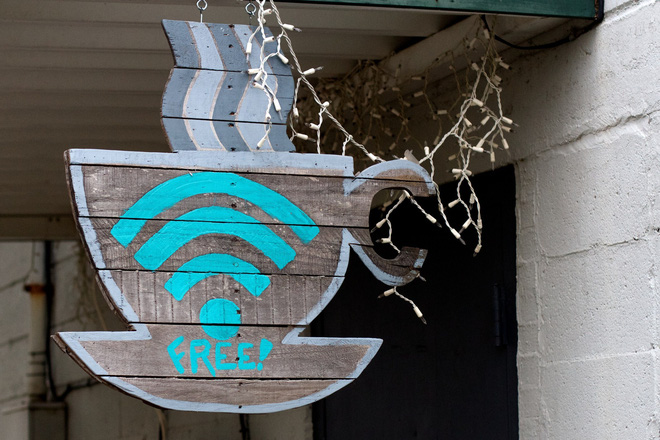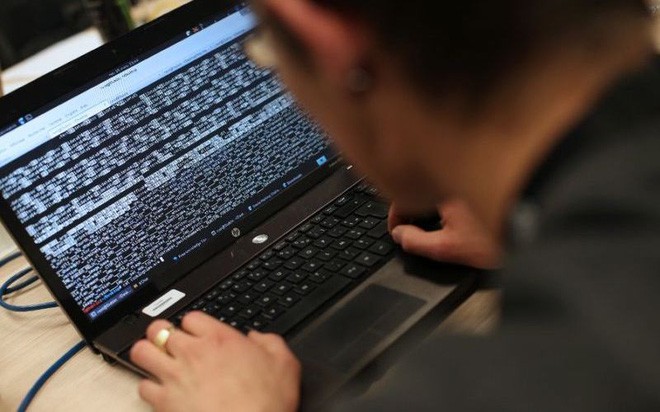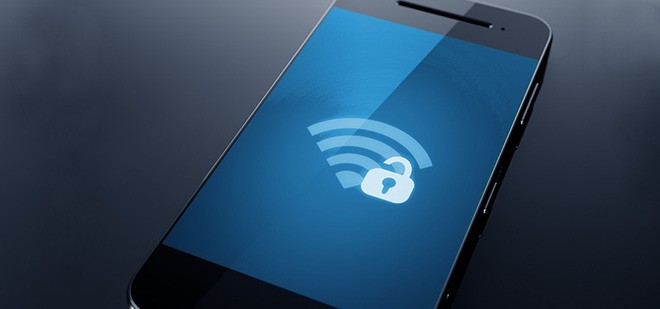Security risks when working remotely during the coronavirus outbreak
More than just a disease, the complicated course of corona virus is forcing people to change not only their lifestyle but also their daily way of working. One of the most noticeable changes in recent years is the fact that many businesses, including Vietnamese ones, let employees work remotely to reduce the risk of virus infection.
But while reducing the risk of virus infection, remote working solutions increase potential vulnerabilities in the enterprise, enabling hackers to infiltrate and cause serious damages such as loss of important data. credentials, gaining access and hacking into the system .
To help businesses improve information security, experts from Vietnam Internet Security Joint Stock Company (VSEC) have shared some of the security risks that are easily exploited in remote and local working environment. wake prevention.
1. Access sensitive data through unsafe Wifi networks

When working from a distance, many employees often have the habit of connecting via personal Wi-Fi or public Wi-Fi - access points are often not strictly secured like in a professional working environment. This will allow hackers to gain access or impersonate access points - especially public WiFi networks - to deceive users and gain access to their devices.
In this case, remote workers should use a VPN to encrypt data when connected to the internet, configure a firewall on the computer to prevent unauthorized access from outside, and need to install and update regularly. update anti-virus software, malicious code.
2. Lack of direct connection
While working remotely, communication activities will mainly be done via online tools such as email, Skype, etc. instead of face-to-face meetings. This will lead to another security risk when hackers can deploy fraudulent methods to try to hijack these online accounts.

Typically, this fraud usually takes place in the form of deceiving users to download and install malware, or to visit fake websites. In particular, at the present time when information about the corona virus pandemic is often concerned, hackers will take advantage of that to spread malicious code as well as steal user accounts.
At this time compliance with security measures is often recommended as the most important thing. Not only do you not share personal information via text or email, but you also do not click on strange links or download document files if you are not sure about it.
3. Using personal equipment for work
Typically, business computers are always equipped with the latest operating systems and security software to prevent viruses, along with firewalls to ensure safety in cyberspace. However, when working remotely on personal devices of employees, these layers of security are no longer available, making it easy for users to become a bait for hackers.
Therefore, one of VSEC's recommendations for remote workers is to use computers and equipment provided by the company. Not only that, it is also advisable to avoid sharing these computer devices with others, such as friends or family members, when they can access malicious websites, compromising security. of equipment.
4. Improper handling of sensitive information

In the process of working remotely, it is difficult to ensure that employees will follow security rules like in the corporate environment. For example, employees may still delete confidential documents when they are put in the trash but forget to completely delete them from the personal computer.
Not to mention the fact that employees can talk about their work over the phone too loudly or leave their computer screens easily visible or even leave devices unattended in public places.
Therefore, businesses should have a policy of training and guiding employees to take the most basic measures to handle data properly and ensure that important corporate secrets are not disclosed.
5. Lost data storage device
It may seem insignificant, but this is also one of the risks for system security when employees work remotely. The move as much as it is difficult to control where employees sit - at home or in public places - will make the loss of this storage device more serious.
Therefore, VSEC recommends that users should limit the device to places where there is no control and in particular, with the important content of the business when it is required to be taken out during remote work. It is recommended to store with Secure USB devices to avoid data loss in case of device drop / theft.